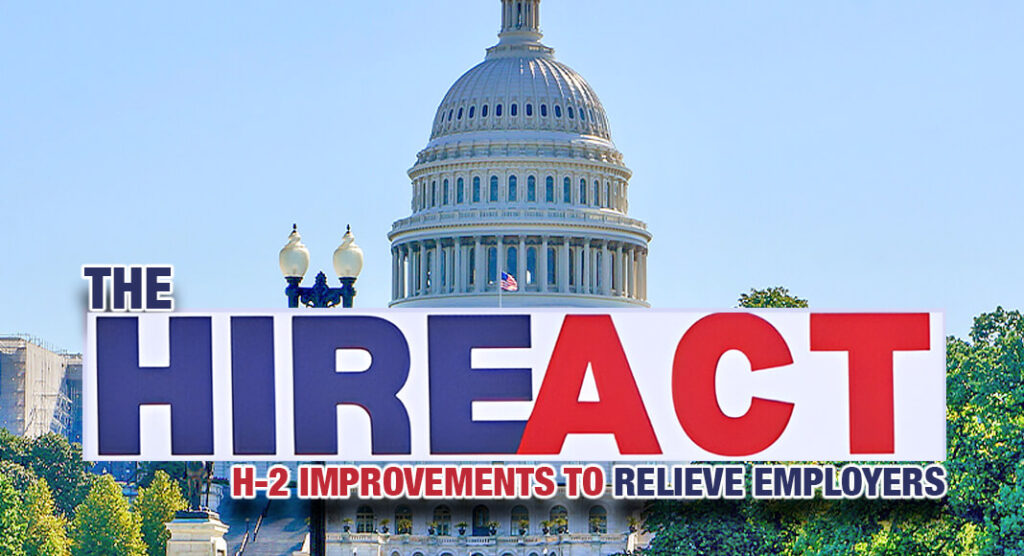
Texas Border Business
In a concerted bipartisan effort to address the nationwide labor shortage crisis, a group of U.S. Congressmen has introduced the H-2 Improvements to Relieve Employers Act, otherwise known as the HIRE Act. The proposed legislation has received widespread support from both sides of the aisle, with its primary objective being to support American employers and small businesses by streamlining the current H-2 Visa program.
The HIRE Act targets the alleviation of the chronic labor shortage facing the U.S., a situation further amplified by the global pandemic’s impact. Moreover, it aims to establish a more effective and lawful framework for foreign labor in the country.
“The current system adds financial and administrative burdens on businesses that are already struggling to find workers. We must make it easier for small businesses, like those in South Texas, to fill their labor needs,” said Congressman Vicente Gonzalez during the Act’s announcement. “This commonsense bill streamlines our nation’s H-2 Visa program, supports our struggling agriculture and construction industries, and mitigates illegal migration.”
The proposed legislation targets South Texas and similar regions, where businesses – particularly in the agricultural and construction sectors – have been hit hardest by labor shortages. It aims to simplify the process of employing foreign labor, removing the bureaucratic red tape that has rendered the H-2 Visa program an employer’s last resort.
Alongside Congressman Gonzalez (TX-34), the bill has been championed by several lawmakers across party lines. These include Congressman Tony Gonzales (TX-23), Juan Ciscomani (AZ-06), Henry Cuellar (TX-28), John Duarte (CA-13), James Moylan (GU-AL), and Shri Thanedar (MI-13). The Act has also received support from the American Farm Bureau, the National Immigration Forum, the Texas Nursery & Landscape Association, and the United States Hispanic Chamber of Commerce.
This broad base of bipartisan support indicates the shared understanding of the nation’s labor shortage crisis and the need to rework our current visa system. The HIRE Act, with its focus on providing easier access to foreign labor, also encapsulates a proactive approach to addressing unauthorized migration.
As the bill moves forward in Congress, employers and workers alike will be looking with anticipation to see if these proposed changes can bring about the much-needed respite in the labor market. South Texas, among other regions, is poised to benefit significantly from the HIRE Act if it becomes law.
With the country in dire need of practical and bipartisan solutions, the introduction of the HIRE Act sends a hopeful message: when it comes to the health and vitality of the American economy, unity in Congress is possible.















